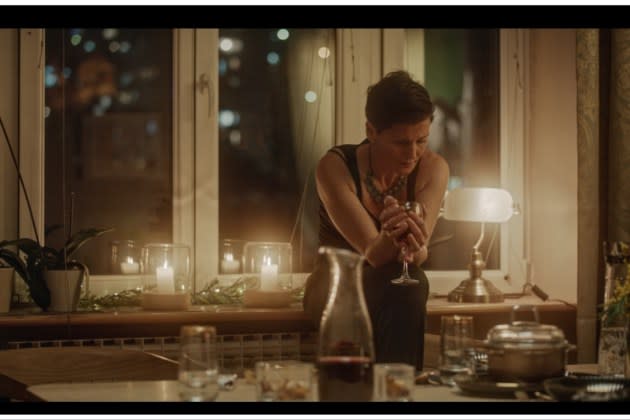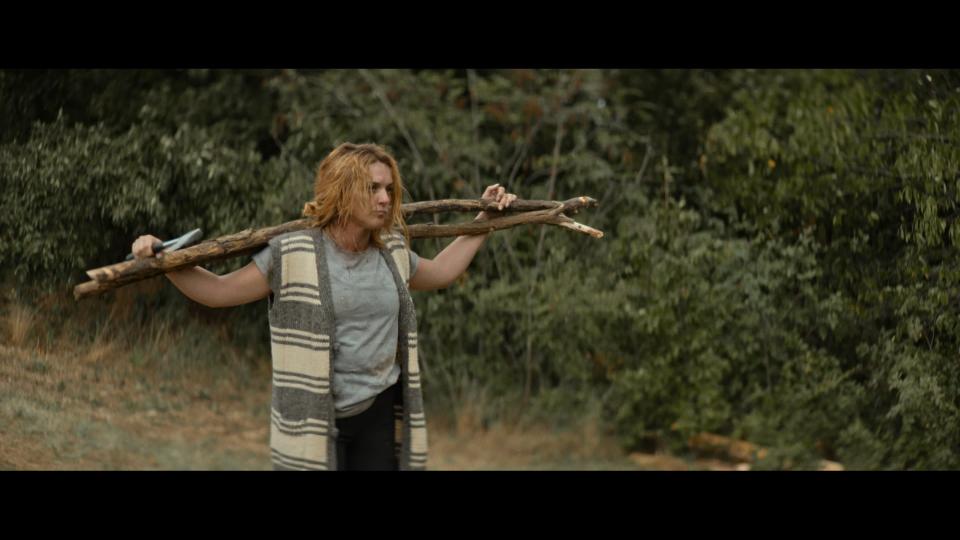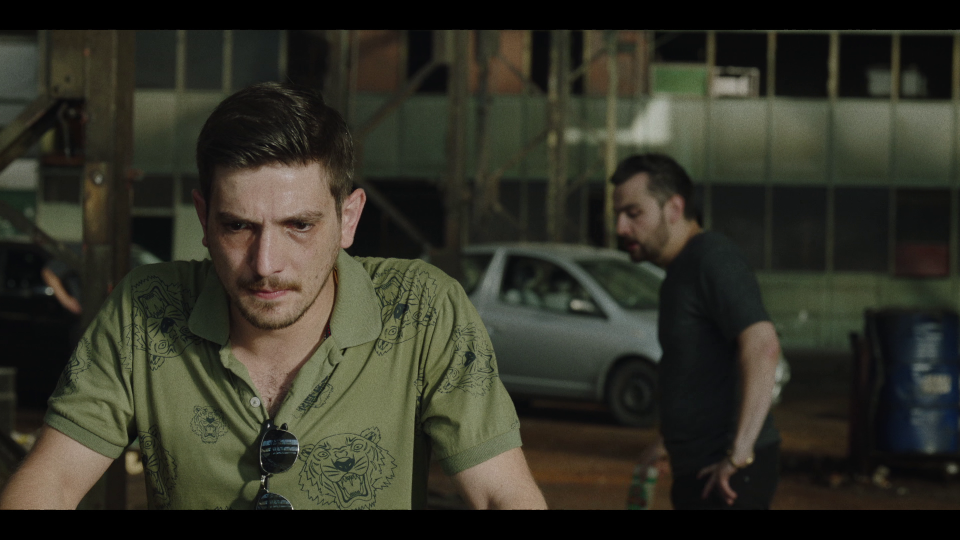Festival In Focus: How Balkan Telecoms Are Boosting Local TV Productions
- Oops!Something went wrong.Please try again later.

In the three years since the Sarajevo Film Festival launched its Heart of Sarajevo TV awards, much has changed in the Balkan region’s television sector thanks to investment from regional telecom companies in the local production space. Companies such as Bosnia and Herzegovina’s BH Telecom, the main sponsor of this year’s Sarajevo Film Festival, and Telecom Serbia have been flexing their financial muscle in a space that undercapitalized public broadcasters and once confident-but-now-nervous global streamers are yet to enter.
BH Telecom is behind three local productions up for nominations at the festival’s TV awards this year: Bosnian crime drama The Hollow, which was co-created by Oscar-winning director Danis Tanović; and comedies Tender and On the Edge of Reason directed by Srdan Vuletić and Elmir Jukić respectively. Meanwhile, Telecom Serbia has backed five drama nominees: The Fall, based on the true story of a young and popular actor who commits a double homicide; crime thrillers Clan 2 and Clan 3; soccer drama Golden Boy; and The Well.
More from Deadline
Sarajevo festival director Jovan Marjanović says production has “skyrocketed” in Bosnia since BH Telecom, which is 51% owned by the government, entered the field. “We’ve been working and consulting with them for more than four years and production has skyrocketed by 400% just by their entrance into the field,” he says. “They’ve done it in an organized and strategic way. They built their IPTV platform first and then started working on original concepts that they wanted to make with local talent.”
BH Telecom CEO Sedin Kahriman says the group intends to “create the largest domestic platform for audiovisual content production” via its BH Content Lab platform, which announced an initial fund of €15 million. So far, it has invested in seven projects, three of which are airing now and two soon to premiere: Tanović’s The Hollow; I Know Your Soul from Jasmina Žbanić, which is premiering in at the Venice Film Festival next month; sitcoms Tender and On The Edge Of Reason directed by Srdan Vuletić and Elmir Jukić respectively; and Alen Šimić’s Smashing It. Production for two additional projects – When I Was An Imam and Komar – are expected to begin in the third quarter of 2023.

“The television market in Bosnia and Herzegovina and in the region is making a significant effort to keep up with the European market trends through modernization, digitization, introduction of online services, adaptation of the program scheme via linear streaming and through the supply of enticing content,” says Kahriman, adding that original drama series “are of particular interest” to the company.
“Additionally, we released a directed public call for topics relating to significant events from several eras of local history, including middle-aged Bosnia, the Ottoman period, the Austro-Hungarian period, WWII, the Defensive War of Liberation and Sarajevo Siege,” he says. “Our region has a lot of historical events, different people and personalities and details that might inspire dramatic treatment with artistic freedom, the use of fiction and genre treatment. We concentrate on these projects as well as thrillers and mysteries because the Scandi noir genres are popular internationally and also prominent in our market.”
Marjanović says he’s encouraged by BH Telecom’s strategy, especially since Warner Bros. Discovery announced last year that it will no longer produce original content for HBO Europe in the Nordics, Central Europe the Netherlands, and Turkey. With the streamers yet to show any real interest in investment in local productions in the Balkan region, telecom operators can fill a gap that is desperately needed for independent producers in the television space.
“There’s a corporate social responsibility to create local content and fill the gap that the local streamers helped create because they didn’t move into the market with their original productions,” he says. “Small, indie producers cannot put a couple of million needed together for a TV show. Films rely on co-productions and debt but can take so long to put together so for the indie producers that have big telecom companies coming into plug a gap in the capital needed, it’s a game changer. And also, they have a built-in audience already.”
Telecom Serbia, meanwhile, began investing in local content five years ago and since then has produced more than 100 titles, 60 of which are “ready for global distribution,” according to the company. Since it’s entered the local content production fray, it’s established partnerships with Amazon Prime, Disney Plus, SBS Australia, GloboPlay Brazil, Telemundo, Voyo, RTL, Flix Latino as well as Germany’s Beta Film and India’s GoQuest Media.
“Our strategy involves investing in diverse genres and projects that connect not only the creative industry of Serbia, but the entire Central and Eastern European region,” says Aleksandra Martinović, director of multimedia division at Telecom Serbia. “As evidence of this, we have the ‘Frust’ project which will premiere at this year’s Sarajevo Film Festival, bringing together over 100 actors from the region and showcasing the creative talent of the area.”

Firefly’s Ivana Miković, Serbian producer of The Fall, Clan 2 and Clan 3, says that Telecom Serbia has been the main driver behind this big push for drama series production in the country in the last three to five years. “They’re the initiators of the big volume of productions being filmed in Serbia,” she says. “It’s been really great because they have boosted the industry and given us the opportunity to raise the production standards, give better titles and employ more writers and more directors. The industry has just bloomed since their entry to the market.”
Indeed, Serbia has been producing between 20-30 shows per year since Telcom Serbia’s entrance, something that Croatian producer Nebojša Taraba, who produced hit show The Paper, which Keshet International sold to Netflix in 2018, says is something of a “sociological phenomenon.”
“It was kind of a political fight between state-owned television and state telecoms against commercial competitors,” he says. “The way programs are distributed in Serbia are mostly through either IPTV or to cable. So, they were literally fighting for the users by making an enormous number of new titles of TV series per year. That kind of hyperproduction will not always bring quality and you can see that even on a global scale when we talk about certain global streamers who used to hyperproduce. It doesn’t mean with the quantity you suddenly get quality.”
Croatian production, he says, is more reflective of the “financial and creative capacity of the market. “I’m personally always in favor of that – it’s about two to three high-end series per year and fix to six movies, which are mostly financed by the national film fund [HAVC].”
But for Martinović, she doesn’t see a negative connotation in the term ‘hyperproduction’. “I see an opportunity and a chance to collectively raise the standard of feature content production and to focus on its diversification rather than uniformity,” she says. “Streaming platforms like Netflix, Amazon and others are certainly a reflection of the new era and a modern approach to content. Collaboration with them is of essential importance, just as collaboration with telecom operators like Telecom Serbia is, because we have a well-developed channel for distribution as well as content. Telco operators are adapting to new market trends and opportunities.”
For Marjanović, he’s encouraged by series nominated in the TV strand of the festival and the possibility for them to break out into the international market, highlighting projects such as Žbanic’s I Know Your Soul and The Hollow.
Žbanic, who was nominated for an Oscar for her film Quo Vadis, Aida?, is hopeful that her series I Know Your Soul, which is premiering at Venice, will break through to an international audience. The series tells the story of a prosecutor Nevena (Jasna Djuricic) who is a newly single mother to a teenage son as she is in the process of getting a divorce. A case of an adolescent’s suicide that she is working on triggers an avalanche of events in her professional and private life, as she finds it increasingly difficult to balance her son Dino (Lazar Dragojevic) and a job that is under constant public and political pressure.
“We are all very much influenced by U.S. TV series and only recently Bosnian Telecom started producing domestic content,” says Žbanić. “We had a history of great Yugoslav TV shows but after the war, the situation changed. Still, people love to see their own topics, cities and languages as well as watching foreign content. I’m curious to see if Balkan content that doesn’t represent what is stereotypically expected of the Balkans will attract an audience.”
Pushing Balkan content forward on the international TV stage is a challenge but one that Kahriman thinks is achievable long-term. “Currently there are various obstacles,” he says. “The most important of which I believe is to continually raise standards and expectations, to exceed the expectations of the audience and users and to give consistent continuity in this.”
Taraba adds, “The plus side is the Balkan region isn’t really affected by the negative effects of global development at present because we are still dealing with our local problems here. But I think that we will manage to keep at least this existing level of production.”
Best of Deadline
2023 Premiere Dates For New & Returning Series On Broadcast, Cable & Streaming
SAG-AFTRA Interim Agreements: List Of Movies And Series Granted Waivers
Hollywood & Media Deaths In 2023: Photo Gallery & Obituaries
Sign up for Deadline's Newsletter. For the latest news, follow us on Facebook, Twitter, and Instagram.

